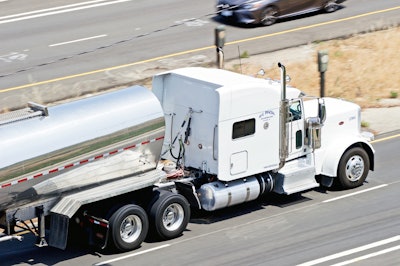 The biggest causes of independent contractor misclassification allegations are money and injuries, Kelly said. “Injured ICs can be workers-comp-seeking missiles,” he said. Lacking workers’ comp or occupational accident insurance, an injured owner-op is mostly likely to turn to a carrier’s workers’ comp policy and try to qualify.
The biggest causes of independent contractor misclassification allegations are money and injuries, Kelly said. “Injured ICs can be workers-comp-seeking missiles,” he said. Lacking workers’ comp or occupational accident insurance, an injured owner-op is mostly likely to turn to a carrier’s workers’ comp policy and try to qualify.As California and other states figure out how they’ll handle independent contractor definitions, carriers can take some simple steps that could help them defend their owner-operator classifications, said Openforce CEO Ryan Kelly, whose company helps carriers with outsourcing.
Many of Kelly’s tips involve ways to clearly show that employee drivers and owner-operators are treated differently. He spoke on “Building a Battle Plan to Survive A.B. 5 and the ABC Test” Tuesday at a session of the Truckload Carriers Association annual meeting outside of Orlando, Florida.
While California’s legislation that effectively outlawed owner-operator truckers in the state, A.B. 5 and its ABC test, has received most of the attention in recent months, similar initiatives are coming up in other states, Kelly said. Also, the classification distinction arises in other areas of employment, such as workers’ comp and other types of insurance. Nevada, for instance, is quite friendly to independent contractors, but it has an ABC test in its workers’ compensation law, he said.
California’s biggest problem for trucking has been the B prong of the three-pronged ABC test, which says the contractor cannot be performing work that is essentially the same work the employer does. Two California cases involving trucking have ruled temporarily against A.B. 5. “These are great decisions, but still in flux,” Kelly said. It appears some states are watching for court rulings to get worked out before progressing with similar legislation.
The biggest causes of independent contractor misclassification allegations are money and injuries, Kelly said. “Injured ICs can be workers-comp-seeking missiles,” he said. Lacking workers’ comp or occupational accident insurance, an injured owner-op is mostly likely to turn to a carrier’s workers’ comp policy and try to qualify.
One way a fleet can protect against that is to require in a leasing contract that owner-ops have their own insurance covering on-the-job injuries, Kelly said. If owner-ops are able to participate in a carrier’s insurance plan, consult with legal counsel regarding chargebacks, which can get “sticky” over nuances in federal law of whether the insurance is protecting the public or the owner-operator.
“If you are charging your owner-operators back for insurance, be very careful about markups” on the premiums, Kelly said, which are viewed differently among states. Maryland, for example, “almost treats that as the selling of insurance.”
Kelly encouraged fleets to “mind the details” in distinguishing driver types at every phase of onboarding, to the point of having separate tracks for orientation. For example, some fleets give owner-ops the same “employee handbook” that employees get. Instead, “make it a specific owner-operator manual,” or even better, arrange it so owner-ops don’t need a manual, in line with being experienced, truly independent contractors.
Similarly, with fleet programs recognizing driver safety or length of service, the ideal would be to differ the programs in name and other details for each driver group, he said.
Even if the courts force California to back away from A.B. 5 and its ABC test, fleets will still face scrutiny, likely under the Borello test, to define independent contractors, Kelly said. Borello came from a 1989 California Supreme Court ruling that relies upon 12 or 13 factors, many of which address how much control the employer has over the worker.
“Borello is referred to as a ‘multifactor’ test because it requires consideration of all potentially relevant facts,” says a state of California website. “No single factor controls the determination.”
The ABC test and the Borello test assume the individual is an employee, putting the burden of proof on the employer to prove the worker is an independent contractor.










